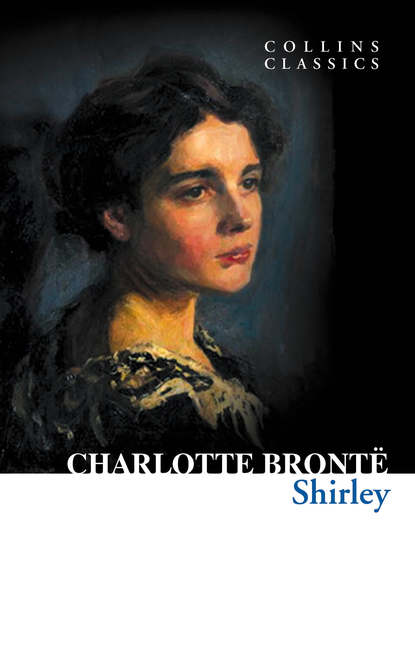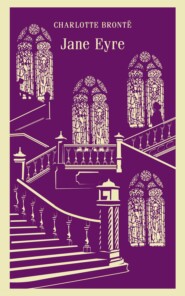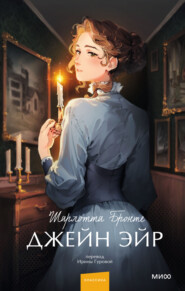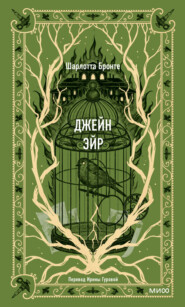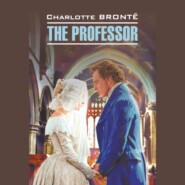По всем вопросам обращайтесь на: info@litportal.ru
(©) 2003-2025.
✖
Shirley
Настройки чтения
Размер шрифта
Высота строк
Поля
“And there was Dr. Broadbent,” cried Hannah—“such a beautiful speaker! You couldn’t expect it of him, for he is almost a vulgar-looking man.”
“But such a dear man,” interrupted Mary.
“And such a good man, such a useful man,” added her mother.
“Only like a butcher in appearance,” interposed the fair, proud Harriet. “I couldn’t bear to look at him. I listened with my eyes shut.”
Miss Helstone felt her ignorance and incompetency. Not having seen Dr. Broadbent, she could not give her opinion. Pause third came on. During its continuance, Caroline was feeling at her heart’s core what a dreaming fool she was, what an unpractical life she led, how little fitness there was in her for ordinary intercourse with the ordinary world. She was feeling how exclusively she had attached herself to the white cottage in the Hollow, how in the existence of one inmate of that cottage she had pent all her universe. She was sensible that this would not do, and that some day she would be forced to make an alteration. It could not be said that she exactly wished to resemble the ladies before her, but she wished to become superior to her present self, so as to feel less scared by their dignity.
The sole means she found of reviving the flagging discourse was by asking them if they would all stay to tea; and a cruel struggle it cost her to perform this piece of civility. Mrs. Sykes had begun, “We are much obliged to you, but—” when in came Fanny once more.
“The gentlemen will stay the evening, ma’am,” was the message she brought from Mr. Helstone.
“What gentlemen have you?” now inquired Mrs. Sykes. Their names were specified; she and her daughters interchanged glances. The curates were not to them what they were to Caroline. Mr. Sweeting was quite a favourite with them; even Mr. Malone rather so, because he was a clergyman. “Really, since you have company already, I think we will stay,” remarked Mrs. Sykes. “We shall be quite a pleasant little party. I always like to meet the clergy.”
And now Caroline had to usher them upstairs, to help them to unshawl, smooth their hair, and make themselves smart; to reconduct them to the drawing-room, to distribute amongst them books of engravings, or odd things purchased from the Jew-basket. She was obliged to be a purchaser, though she was but a slack contributor; and if she had possessed plenty of money, she would rather, when it was brought to the rectory—an awful incubus!—have purchased the whole stock than contributed a single pin-cushion.
It ought perhaps to be explained in passing, for the benefit of those who are not au fait to the mysteries of the “Jew-basket” and “missionary-basket,” that these meubles are willow repositories, of the capacity of a good-sized family clothes-basket, dedicated to the purpose of conveying from house to house a monster collection of pin-cushions, needle-books, card-racks, workbags, articles of infant wear, etc., etc., etc., made by the willing or reluctant hands of the Christian ladies of a parish, and sold perforce to the heathenish gentlemen thereof, at prices unblushingly exorbitant. The proceeds of such compulsory sales are applied to the conversion of the Jews, the seeking up of the ten missing tribes, or to the regeneration of the interesting coloured population of the globe. Each lady contributor takes it in her turn to keep the basket a month, to sew for it, and to foist off its contents on a shrinking male public. An exciting time it is when that turn comes round. Some active-minded woman, with a good trading spirit, like it, and enjoy exceedingly the fun of making hard-handed worsted-spinners cash up, to the tune of four or five hundred per cent. above cost price, for articles quite useless to them; other feebler souls object to it, and would rather see the prince of darkness himself at their door any morning than that phantom basket, brought with “Mrs. Rouse’s compliments; and please, ma’am, she says it’s your turn now.”
Miss Helstone’s duties of hostess performed, more anxiously than cheerily, she betook herself to the kitchen, to hold a brief privy-council with Fanny and Eliza about the tea.
“What a lot on ’em!” cried Eliza, who was cook. “And I put off the baking to-day because I thought there would be bread plenty to fit while morning. We shall never have enow.”
“Are there any tea-cakes?” asked the young mistress.
“Only three and a loaf. I wish these fine folk would stay at home till they’re asked; and I want to finish trimming my hat” (bonnet she meant).
“Then,” suggested Caroline, to whom the importance of the emergency gave a certain energy, “Fanny must run down to Briarfield and buy some muffins and crumpets and some biscuits. And don’t be cross, Eliza; we can’t help it now.”
“And which tea-things are we to have?”
“Oh, the best, I suppose. I’ll get out the silver service.” And she ran upstairs to the plate-closet, and presently brought down teapot, cream-ewer, and sugar-basin.
“And mun we have th’ urn?”
“Yes; and now get it ready as quickly as you can, for the sooner we have tea over the sooner they will go—at least, I hope so. Heigh-ho! I wish they were gone,” she sighed, as she returned to the drawing-room. “Still,” she thought, as she paused at the door ere opening it, “if Robert would but come even now how bright all would be! How comparatively easy the task of amusing these people if he were present! There would be an interest in hearing him talk (though he never says much in company) and in talking in his presence. There can be no interest in hearing any of them, or in speaking to them. How they will gabble when the curates come in, and how weary I shall grow with listening to them! But I suppose I am a selfish fool. These are very respectable gentlefolks. I ought, no doubt, to be proud of their countenance. I don’t say they are not as good as I am—far from it—but they are different from me.”
She went in.
Yorkshire people in those days took their tea round the table, sitting well into it, with their knees duly introduced under the mahogany. It was essential to have a multitude of plates of bread and butter, varied in sorts and plentiful in quantity. It was thought proper, too, that on the centre plate should stand a glass dish of marmalade. Among the viands was expected to be found a small assortment of cheesecakes and tarts. If there was also a plate of thin slices of pink ham garnished with green parsley, so much the better.
Eliza, the rector’s cook, fortunately knew her business as provider. She had been put out of humour a little at first, when the invaders came so unexpectedly in such strength; but it appeared that she regained her cheerfulness with action, for in due time the tea was spread forth in handsome style, and neither ham, tarts, nor marmalade were wanting among its accompaniments.
The curates, summoned to this bounteous repast, entered joyous; but at once, on seeing the ladies, of whose presence they had not been forewarned, they came to a stand in the doorway. Malone headed the party; he stopped short and fell back, almost capsizing Donne, who was behind him. Donne, staggering three paces in retreat, sent little Sweeting into the arms of old Helstone, who brought up the rear. There was some expostulation, some tittering. Malone was desired to mind what he was about, and urged to push forward, which at last he did, though colouring to the top of his peaked forehead a bluish purple. Helstone, advancing, set the shy curates aside, welcomed all his fair guests, shook hands and passed a jest with each, and seated himself snugly between the lovely Harriet and the dashing Hannah. Miss Mary he requested to move to the seat opposite to him, that he might see her if he couldn’t be near her. Perfectly easy and gallant, in his way, were his manners always to young ladies, and most popular was he amongst them; yet at heart he neither respected nor liked the sex, and such of them as circumstances had brought into intimate relation with him had ever feared rather than loved him.
The curates were left to shift for themselves. Sweeting, who was the least embarrassed of the three, took refuge beside Mrs. Sykes, who, he knew, was almost as fond of him as if he had been her son. Donne, after making his general bow with a grace all his own, and saying in a high, pragmatical voice, “How d’ye do, Miss Helstone?” dropped into a seat at Caroline’s elbow, to her unmitigated annoyance, for she had a peculiar antipathy to Donne, on account of his stultified and immovable self-conceit and his incurable narrowness of mind. Malone, grinning most unmeaningly, inducted himself into the corresponding seat on the other side. She was thus blessed in a pair of supporters, neither of whom, she knew, would be of any mortal use, whether for keeping up the conversation, handing cups, circulating the muffins, or even lifting the plate from the slop-basin. Little Sweeting, small and boyish as he was, would have been worth twenty of them.
Malone, though a ceaseless talker when there were only men present, was usually tongue-tied in the presence of ladies. Three phrases, however, he had ready cut and dried, which he never failed to produce:—
1stly. “Have you had a walk to-day, Miss Helstone?”
2ndly. “Have you seen your cousin Moore lately?”
3rdly. “Does your class at the Sunday school keep up its number?”
These three questions being put and responded to, between Caroline and Malone reigned silence.
With Donne it was otherwise; he was troublesome, exasperating. He had a stock of small-talk on hand, at once the most trite and perverse that can well be imagined—abuse of the people of Briarfield; of the natives of Yorkshire generally; complaints of the want of high society; of the backward state of civilization in these districts; murmurings against the disrespectful conduct of the lower orders in the north toward their betters; silly ridicule of the manner of living in these parts—the want of style, the absence of elegance, as if he, Donne, had been accustomed to very great doings indeed, an insinuation which his somewhat underbred manner and aspect failed to bear out. These strictures, he seemed to think, must raise him in the estimation of Miss Helstone or of any other lady who heard him; whereas with her, at least, they brought him to a level below contempt, though sometimes, indeed, they incensed her; for, a Yorkshire girl herself, she hated to hear Yorkshire abused by such a pitiful prater; and when wrought up to a certain pitch, she would turn and say something of which neither the matter nor the manner recommended her to Mr. Donne’s good-will. She would tell him it was no proof of refinement to be ever scolding others for vulgarity, and no sign of a good pastor to be eternally censuring his flock. She would ask him what he had entered the church for, since he complained there were only cottages to visit, and poor people to preach to—whether he had been ordained to the ministry merely to wear soft clothing and sit in king’s houses. These questions were considered by all the curates as, to the last degree, audacious and impious.
Tea was a long time in progress; all the guests gabbled as their hostess had expected they would. Mr. Helstone, being in excellent spirits—when, indeed, was he ever otherwise in society, attractive female society? it being only with the one lady of his own family that he maintained a grim taciturnity—kept up a brilliant flow of easy prattle with his right-hand and left-hand neighbours, and even with his vis-a-vis, Miss Mary; though, as Mary was the most sensible, the least coquettish, of the three, to her the elderly widower was the least attentive. At heart he could not abide sense in women. He liked to see them as silly, as light-headed, as vain, as open to ridicule as possible, because they were then in reality what he held them to be, and wished them to be—inferior, toys to play with, to amuse a vacant hour, and to be thrown away.
Hannah was his favourite. Harriet, though beautiful, egotistical, and self-satisfied, was not quite weak enough for him. She had some genuine self-respect amidst much false pride, and if she did not talk like an oracle, neither would she babble like one crazy; she would not permit herself to be treated quite as a doll, a child, a plaything; she expected to be bent to like a queen.
Hannah, on the contrary, demanded no respect, only flattery. If her admirers only told her that she was an angel, she would let them treat her like an idiot. So very credulous and frivolous was she, so very silly did she become when besieged with attention, flattered and admired to the proper degree, that there were moments when Helstone actually felt tempted to commit matrimony a second time, and to try the experiment of taking her for his second helpmeet; but fortunately the salutary recollection of the ennuis of his first marriage, the impression still left on him of the weight of the millstone he had once worn round his neck, the fixity of his feelings respecting the insufferable evils of conjugal existence, operated as a check to his tenderness, suppressed the sigh heaving his old iron lungs, and restrained him from whispering to Hannah proposals it would have been high fun and great satisfaction to her to hear.
It is probable she would have married him if he had asked her; her parents would have quite approved the match. To them his fifty-five years, his bend-leather heart, could have presented no obstacles; and as he was a rector, held an excellent living, occupied a good house, and was supposed even to have private property (though in that the world was mistaken; every penny of the PS5,000 inherited by him from his father had been devoted to the building and endowing of a new church at his native village in Lancashire—for he could show a lordly munificence when he pleased, and if the end was to his liking, never hesitated about making a grand sacrifice to attain it)—her parents, I say, would have delivered Hannah over to his lovingkindness and his tender mercies without one scruple; and the second Mrs. Helstone, inverting the natural order of insect existence, would have fluttered through the honeymoon a bright, admired butterfly, and crawled the rest of her days a sordid, trampled worm.
Little Mr. Sweeting, seated between Mrs. Sykes and Miss Mary, both of whom were very kind to him, and having a dish of tarts before him, and marmalade and crumpet upon his plate, looked and felt more content than any monarch. He was fond of all the Misses Sykes; they were all fond of him. He thought them magnificent girls, quite proper to mate with one of his inches. If he had a cause of regret at this blissful moment, it was that Miss Dora happened to be absent—Dora being the one whom he secretly hoped one day to call Mrs. David Sweeting, with whom he dreamt of taking stately walks, leading her like an empress through the village of Nunnely; and an empress she would have been, if size could make an empress. She was vast, ponderous. Seen from behind, she had the air of a very stout lady of forty; but withal she possessed a good face, and no unkindly character.
The meal at last drew to a close. It would have been over long ago if Mr. Donne had not persisted in sitting with his cup half full of cold tea before him, long after the rest had finished and after he himself had discussed such allowance of viands as he felt competent to swallow—long, indeed, after signs of impatience had been manifested all round the board, till chairs were pushed back, till the talk flagged, till silence fell. Vainly did Caroline inquire repeatedly if he would have another cup, if he would take a little hot tea, as that must be cold, etc.; he would neither drink it nor leave it. He seemed to think that this isolated position of his gave him somehow a certain importance, that it was dignified and stately to be the last, that it was grand to keep all the others waiting. So long did he linger, that the very urn died; it ceased to hiss. At length, however, the old rector himself, who had hitherto been too pleasantly engaged with Hannah to care for the delay, got impatient.
“For whom are we waiting?” he asked.
“For me, I believe,” returned Donne complacently, appearing to think it much to his credit that a party should thus be kept dependent on his movements.
“Tut!” cried Helstone. Then standing up, “Let us return thanks,” said he; which he did forthwith, and all quitted the table. Donne, nothing abashed, still sat ten minutes quite alone, whereupon Mr. Helstone rang the bell for the things to be removed. The curate at length saw himself forced to empty his cup, and to relinquish the role which, he thought, had given him such a felicitous distinction, drawing upon him such flattering general notice.
And now, in the natural course of events (Caroline, knowing how it would be, had opened the piano, and produced music-books in readiness), music was asked for. This was Mr. Sweeting’s chance for showing off. He was eager to commence. He undertook, therefore, the arduous task of persuading the young ladies to favour the company with an air—a song. Con amore he went through the whole business of begging, praying, resisting excuses, explaining away difficulties, and at last succeeded in persuading Miss Harriet to allow herself to be led to the instrument. Then out came the pieces of his flute (he always carried them in his pocket, as unfailingly as he carried his handkerchief). They were screwed and arranged, Malone and Donne meanwhile herding together and sneering at him, which the little man, glancing over his shoulder, saw, but did not heed at all. He was persuaded their sarcasm all arose from envy. They could not accompany the ladies as he could; he was about to enjoy a triumph over them.
The triumph began. Malone, much chagrined at hearing him pipe up in most superior style, determined to earn distinction too, if possible, and all at once assuming the character of a swain (which character he had endeavoured to enact once or twice before, but in which he had not hitherto met with the success he doubtless opined his merits deserved), approached a sofa on which Miss Helstone was seated, and depositing his great Irish frame near her, tried his hand (or rather tongue) at a fine speech or two, accompanied by grins the most extraordinary and incomprehensible. In the course of his efforts to render himself agreeable, he contrived to possess himself of the two long sofa cushions and a square one; with which, after rolling them about for some time with strange gestures, he managed to erect a sort of barrier between himself and the object of his attentions. Caroline, quite willing that they should be sundered, soon devised an excuse for stepping over to the opposite side of the room, and taking up a position beside Mrs. Sykes, of which good lady she entreated some instruction in a new stitch in ornamental knitting, a favour readily granted; and thus Peter Augustus was thrown out.
Very sullenly did his countenance lower when he saw himself abandoned—left entirely to his own resources, on a large sofa, with the charge of three small cushions on his hands. The fact was, he felt disposed seriously to cultivate acquaintance with Miss Helstone, because he thought, in common with others, that her uncle possessed money, and concluded that, since he had no children, he would probably leave it to his niece. Gerard Moore was better instructed on this point: he had seen the neat church that owed its origin to the rector’s zeal and cash, and more than once, in his inmost soul, had cursed an expensive caprice which crossed his wishes.
The evening seemed long to one person in that room. Caroline at intervals dropped her knitting on her lap, and gave herself up to a sort of brain-lethargy—closing her eyes and depressing her head—caused by what seemed to her the unmeaning hum around her,—the inharmonious, tasteless rattle of the piano keys, the squeaking and gasping notes of the flute, the laughter and mirth of her uncle, and Hannah, and Mary, she could not tell whence originating, for she heard nothing comic or gleeful in their discourse; and more than all, by the interminable gossip of Mrs. Sykes murmured close at her ear, gossip which rang the changes on four subjects—her own health and that of the various members of her family; the missionary and Jew baskets and their contents; the late meeting at Nunnely, and one which was expected to come off next week at Whinbury.
Tired at length to exhaustion, she embraced the opportunity of Mr. Sweeting coming up to speak to Mrs. Sykes to slip quietly out of the apartment, and seek a moment’s respite in solitude. She repaired to the dining-room, where the clear but now low remnant of a fire still burned in the grate. The place was empty and quiet, glasses and decanters were cleared from the table, the chairs were put back in their places, all was orderly. Caroline sank into her uncle’s large easy-chair, half shut her eyes, and rested herself—rested at least her limbs, her senses, her hearing, her vision—weary with listening to nothing, and gazing on vacancy. As to her mind, that flew directly to the Hollow. It stood on the threshold of the parlour there, then it passed to the counting-house, and wondered which spot was blessed by the presence of Robert. It so happened that neither locality had that honour; for Robert was half a mile away from both, and much nearer to Caroline than her deadened spirit suspected. He was at this moment crossing the churchyard, approaching the rectory garden-gate—not, however, coming to see his cousin, but intent solely on communicating a brief piece of intelligence to the rector.
Yes, Caroline; you hear the wire of the bell vibrate; it rings again for the fifth time this afternoon. You start, and you are certain now that this must be he of whom you dream. Why you are so certain you cannot explain to yourself, but you know it. You lean forward, listening eagerly as Fanny opens the door. Right! That is the voice—low, with the slight foreign accent, but so sweet, as you fancy. You half rise. “Fanny will tell him Mr. Helstone is with company, and then he will go away.” Oh! she cannot let him go. In spite of herself, in spite of her reason, she walks half across the room; she stands ready to dart out in case the step should retreat; but he enters the passage. “Since your master is engaged,” he says, “just show me into the dining-room. Bring me pen and ink. I will write a short note and leave it for him.”
Now, having caught these words, and hearing him advance, Caroline, if there was a door within the dining-room, would glide through it and disappear. She feels caught, hemmed in; she dreads her unexpected presence may annoy him. A second since she would have flown to him; that second past, she would flee from him. She cannot. There is no way of escape. The dining-room has but one door, through which now enters her cousin. The look of troubled surprise she expected to see in his face has appeared there, has shocked her, and is gone. She has stammered a sort of apology:—
“I only left the drawing-room a minute for a little quiet.”
There was something so diffident and downcast in the air and tone with which she said this, any one might perceive that some saddening change had lately passed over her prospects, and that the faculty of cheerful self-possession had left her. Mr. Moore, probably, remembered how she had formerly been accustomed to meet him with gentle ardour and hopeful confidence. He must have seen how the check of this morning had operated. Here was an opportunity for carrying out his new system with effect, if he chose to improve it. Perhaps he found it easier to practise that system in broad daylight, in his mill-yard, amidst busy occupations, than in a quiet parlour, disengaged, at the hour of eventide. Fanny lit the candles, which before had stood unlit on the table, brought writing materials, and left the room. Caroline was about to follow her. Moore, to act consistently, should have let her go; whereas he stood in the doorway, and, holding out his hand, gently kept her back. He did not ask her to stay, but he would not let her go.
“Shall I tell my uncle you are here?” asked she, still in the same subdued voice.
“No; I can say to you all I had to say to him. You will be my messenger?”





